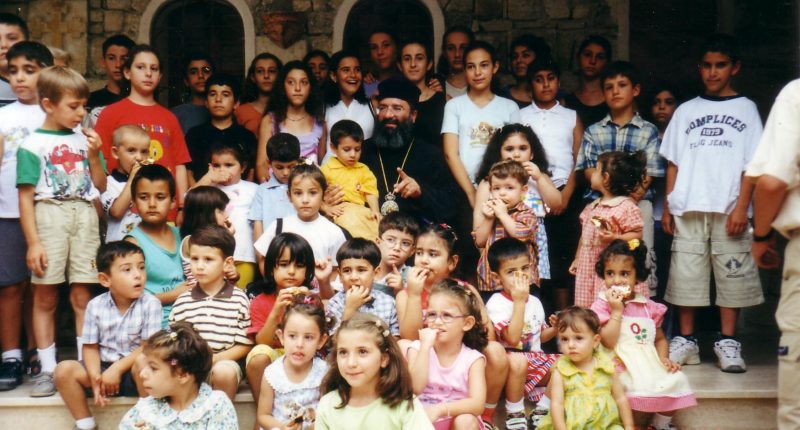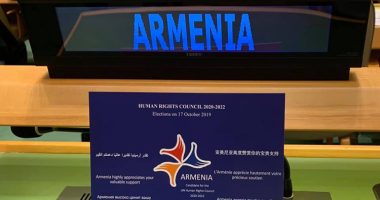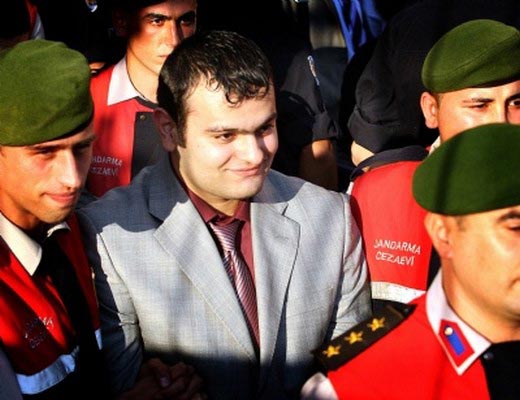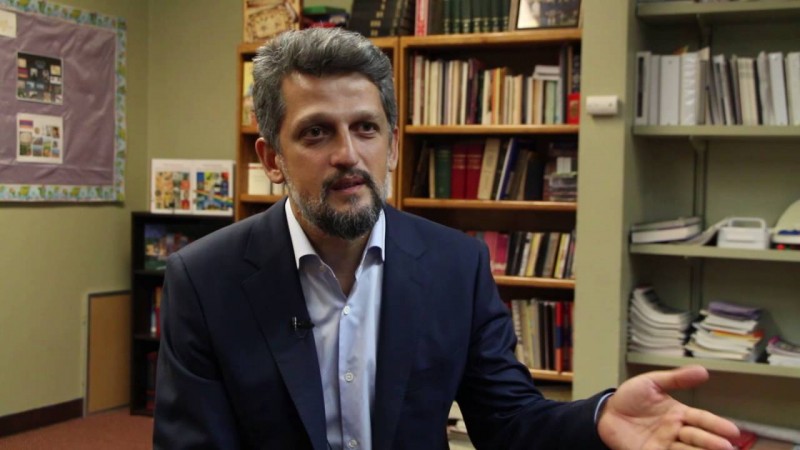Dr. Hratch Tchilingirian
Patriarch Mesrob Mutafyan was one of the most courageous, principled and forward looking church leaders in the contemporary history of the Armenian Church. His youth, charisma, strong pastoral and administrative leadership were assets that the community in Turkey needed at the time of his election as Patriarch. However, his decade-long illness made it impossible to fulfill the hopes of the expected new era in the life of the Armenian community in Turkey.
Physically a towering figure, even as he resembled a biblical character, his thinking was fully in step with the times, creative and purposeful. Above all, as a priest and hierarchy, he was a deeply spiritual person and tried to live what he preached. He became an inspiring role model for multitudes of young people for whom he dedicated serious time and energy with the love of an elder brother.
For Patriarch Mesrob, Christian faith and Armenian culture and language were inseparably intertwined—like body and soul. Unlike many high ranking clergymen, his sermons were almost entirely focused on the Gospel message and its relevance to Armenians today. His Eastern message to the Armenian people on the occasion of the Jubilee of Christianity in Armenia in 2001, was indicative: “Although you have not personally seen the miraculous Resurrection of the Savior, re-confess and strengthen your faith in the witness of the first Illuminators, St. Thaddeus and St. Bartholomew and the other Apostles. Anchor unshakably your spiritual life in the preaching, character and exemplary life of our Patron Saint, Gregory the Illuminator, and the multitudes of other Christ-loving holy fathers.”
When in August 1999 a devastating earthquake hit Turkey’s Marmara region, killing almost 20,000 people, injuring more than 27,000 people and leaving hundreds of thousands homeless, Patriarch Mesrob was one of the first leaders behind the immediate organization of relief work. Within hours after the earthquake, he mobilized the Armenian community and sent rescue teams to the affected areas to help the victims. Aid distribution continued for months. This enormous effort was organized despite far-right Nationalist Action Party Health Minister Osman Durmus’ notorious decision to reject rescuers and aid from Armenia, Greece, and Romania. In a touching move, Mutafyan adopted three Armenian orphans whose parents were killed in the earthquake—one of them a 12-year-old girl whose left leg was amputated. He assured them that they will be taken care of until they graduate from university.
Two of the eminent patriarchs that Mutafyan admired for their indelible leadership and prolific scholarship were Hovhaness IXth Golod (1715-1741) and the formidable Malachia Ormanyan (1896-1908). But most influential in his life was the saintly Patriarch Shnork Kalustian (1963-1990), his spiritual father and a constant inspiration for the ideal religious life.
Mutafyan’s appreciation and taste for aesthetic details brought a certain degree of sophistication to the Patriarchal office and regalia, yet he remained faithful to church tradition and the rich history of the Patriarchate, which was established in 1461.
The assassination of Hrant Dink in January 2007 had a shocking effect on Mutafyan, as he too, started to receive more frequent death threats. In June of that year, he went to Ankara to meet with the Chief of the General Staff, General Yaşar Büyükanıt, the top military man in Turkey, a rather unusual visit for a religious leader, but indicative of the tortuous relationship of the church and the community with the Turkish state. When asked why Mutafyan wished to meet with the military head rather than the Prime Minister, he said there were allegations that Hrant Dink was assassinated by the security forces and, therefore, he wanted to ask the army chief “the necessary question: What would you advise the Armenians? What should we do?”
In that fateful year, he was involved in a serious car accident from which he did not fully recover. Along with the anxieties caused by death threats, his health gradually deteriorated for mysterious reasons. In the summer of 2008, the Holy Saviour Armenian Hospital in Istanbul (Ս. Փրկիչ Ազգային Հիվանդանոց) officially announced that the Patriarch is afflicted with Alzheimer’s disease. Eight years later, in October 2016, the Clergy Council of the Patriarchate officially retired him through a canonical procedure, but the Turkish government did not recognize it and insisted that Mutafyan is the Patriarch as long as he is alive. For over a decade until his death on 8th March 2019, he remained in vegetative state in the hospital, away from public view and unable to carry out his patriarchal duties. He is survived by his mother Diramayr Mari Mutafyan and his sisters.
Archbishop Mesrob Mutafyan was elected 84th Patriarch of “Istanbul and All of Turkey” on 14 October 1998, at the young age of 42, after months of state interference in the election process. The election took place only after the Governor of Istanbul sent the required approval of the Government, which permitted the Armenian community in Turkey to proceed. The 79 lay and 10 clergy delegates of the General Assembly of the Armenian Church Community officially represented 15,811 church members from Istanbul, Kayseri, Diyarbakir, Iskenderun, Kirikhan and Vakifkoy.
While historically known as the Armenian Patriarchate of Constantinople—and still referred to as such in Armenian (Պատրիարքութիւն Հայոց Կոստանդնուպոլսոյ)—the reference to the ancient capital of Byzantium is a taboo and considered a politically charged term. Indeed, a few months before his election, a Turkish television accused Archbishop Mesrob of committing “a crime” by placing a wreath at the funeral of his predecessor with the Armenian inscription: “Patriarchate of Constantinople”. Likewise, the Greek Patriarch, who is recognized as the Ecumenical Patriarch of Constantinople by the Orthodox world, is referred to in Turkey and by officialdom as the “Patriarch of Fener”, after the neighborhood where the patriarchal headquarters are located. It must be noted that both Patriarchates do not have legal status, which means they cannot engage in legal transactions. Ninety-six years after the establishment of the Turkish Republic, the Turkish state continues to refuse to recognize them as legal personalities.
At the time of his election, the Turkish state had implicitly made its displeasure with Archbishop Mesrob Mutafyan’s candidacy known. In addition to his audacious public pronouncements as the Chancellor of the Patriarchate, during previous Patriarchal elections in 1990 and 1998, the charismatic bishop had led the campaign for a “people’s choice,” rather than supporting the candidate favored by the Turkish government. The mobilization during these elections became the catalyst for the community to become active again and engage with the Government and politics. Mutafyan mobilized a group of young and progressive Armenians and engaged them in community affairs. Among them was Hrant Dink, who became a spokesperson of the Patriarchate in the early 1990s and from where the idea for Agos germinated. The hunger to speak out and the desire to address the “existential” problems surrounding the Armenian Church and community institutions in general, sparked the creation of the bilingual weekly newspaper in April 1996.
Patriarch Mesrob was invariably criticized by the media in Armenia and the Diaspora for statements he had made or policies he had adopted. Fierce criticism were leveled at him from Istanbul to Etchmiadzin and to various circles in the Diaspora, especially when he was publicly critical of the Catholicos or when he championed the cause of the Melkonian School in Cyprus, or when he spoke, for domestic reasons in Turkey, against the recognition of the Genocide by foreign parliaments. One Armenian party newspaper preposterously warned that Mutafyan is exporting “his eccentricities to other communities with unchecked imperial ambitions.”
Most notably, in June 1998, Mutafyan made headlines for commenting on the French National Assembly’s affirmation of the Armenian Genocide. “The Armenian community in Turkey finds itself between two fires,” he said. “The state of Armenia, the Armenian Diaspora and the Turkish government, all three have different views and opinions… when these three shoot at each other, we are right in the middle,” he said with frustration.
Leading an extremely vulnerable community required understanding, diplomacy, patience and judgment. Surely, Mutafyan did not satisfy everyone—Armenia, Diaspora or Turkey—but he had said from the outset of his tenure that his responsibility is to place the interests of his flock and community above all other considerations.
In the early 2000s, Patriarch Mesrob and Hrant Dink had bitter disagreements, especially over the critical issue of as to who should represent the Armenian community before the government. Many at times the dispute over policy and procedure played out in the media. Nevertheless, their essential problems and issues vis a vis the Turkish state and society were the same: state-instituted discrimination of minorities and erosion of their rights. In his eulogy at Hrant Dink’s funeral, Patriarch Mesrob lamented the “enmity against the Armenians” created in society and said efforts to eliminate such characterizations should “begin with our school textbooks and our schools to change the attitude, mentality, and practices that are behind the perception of Armenians as enemies, so that our government and people accept us not as foreigners and potential enemies but as citizens of the Republic of Turkey, who have lived for thousands of years on this soil.”
Long before Hrant Dink’s entrance into public life, in the late 1980s there were steady public campaigns through the media and the courts against a number of clergymen—the religious leadership of the community—among them Bishop Mesrob, when he was the outspoken young Chancellor of the Patriarchate. He was falsely accused of supporting, predictably, “terrorist acts against Turks” in sensationalist newspaper headlines. Among a host of preposterous court cases brought against him in the same period, one is notable. In 1987 Mutafyan appeared in a Turkish Criminal Court in Istanbul to face charges for violating the country’s statutes on the preservation of historical buildings. A state prosecutor had charged him of being guilty of covering the leaking roof of a balcony of the Armenian Patriarchate with rubber-based tiles (“eternite”). The prosecutor asked the court to sentence Mutafyan to two to five year prison term for the offense. A confidential report, revealed during Hrant Dink’s trial, showed that Mutafyan was under surveillance by the police and intelligence services “for his Armenian nationalist inclinations”—as labelled by the state agencies.
Upon his election as Patriarch, Mutafyan was able to develop a modus vivendi with the state, even as he demanded respect for the rights of the church and community with tact and discretion. During a visit to Ankara in 2001, he assured the Chairman of the Grand National Assembly that “the interests of the Turkish Armenians are in line with the interests of the State and the place where the problems of the Community are ought to be discussed is the [Parliament].”
Among the critical challenges Patriarch Mesrob faced at his election was the lack of adequately trained and sufficient number of priests to staff Istanbul’s 33 Armenian churches. Over the years he successfully recruited a cadre of young candidates, trained and ordained them to the priesthood. Many of them continue to serve the Patriarchate until today.
Minas Mutafyan, his baptismal name, was born in Istanbul in 1956. Upon completing his elementary education at the local Essayan Armenian School, he attended a British secondary school in Istanbul and later the American High School in Stuttgart, Germany. He graduated with Bachelors in sociology and philosophy from the University of Memphis, Tennessee. He was ordained a priest in May 1979 by his spiritual mentor Patriarch Shnork Kalustian. Mutafyan continued his graduate studies in Old Testament and archaeology at the Hebrew University and the American Biblical Institute in Jerusalem. In September 1986 he was consecrated a bishop by Catholicos Vazken I in Etchmiadzin. While continuing his post graduate studies, he served the pastoral and spiritual needs of the community though various churches in Istanbul and the Princes’ Islands and held high level positions within the Patriarchate.
Being Patriarch of Turkey is not an envious position. The Armenian community, the religious and lay leadership in Turkey have to constantly juggle their ethnic and state loyalties. “Every Armenian in Turkey grows up with three elements in his personality: being a Turkish citizen, then his heritage as an Armenian, and then his faith as a Christian in a country which is overwhelmingly-99 percent-Moslem,” Mutafyan had explained in an interview.
The elections of church and charity trusts are major “political” issue for the Turkish Government. It is one of the controlling mechanisms of the state by which it manages the affairs of the minorities and ensures loyalty. Since 2013, the Government has not allowed minorities to hold new elections. Previously, even participation in elections outside Turkey were not allowed. For instance, in 1995, Ankara forbade lay delegates from Istanbul to participate in elections for a new Catholicos in Armenia. A year earlier, the Government had ordered the Patriarchate to disband its Council of lay advisers.
In the coming months it remains to be seen as to how the Turkish government will handle the election of Mutafyan’s successor. Predictably, the election process will face the customary state-imposed restrictions and administrative hurdles, which will be exacerbated by the personality clashes and ambitions of the high ranking clergymen at the Patriarchate. Turkish law mandates Mutafyan’s successor to be a Turkish citizen or at least born in Turkey, preferably one who has completed the mandatory Turkish military service, which limits the list of eligible candidates to only a few. None have the caliber and gravitas of Patriarch Mesrob Mutafyan. Enormous challenges are ahead of the Church and community in Turkey.
For a wider context and discussion of the Armenian community in Turkey, see Hratch Tchilingirian’s “The Other Citizens.”










